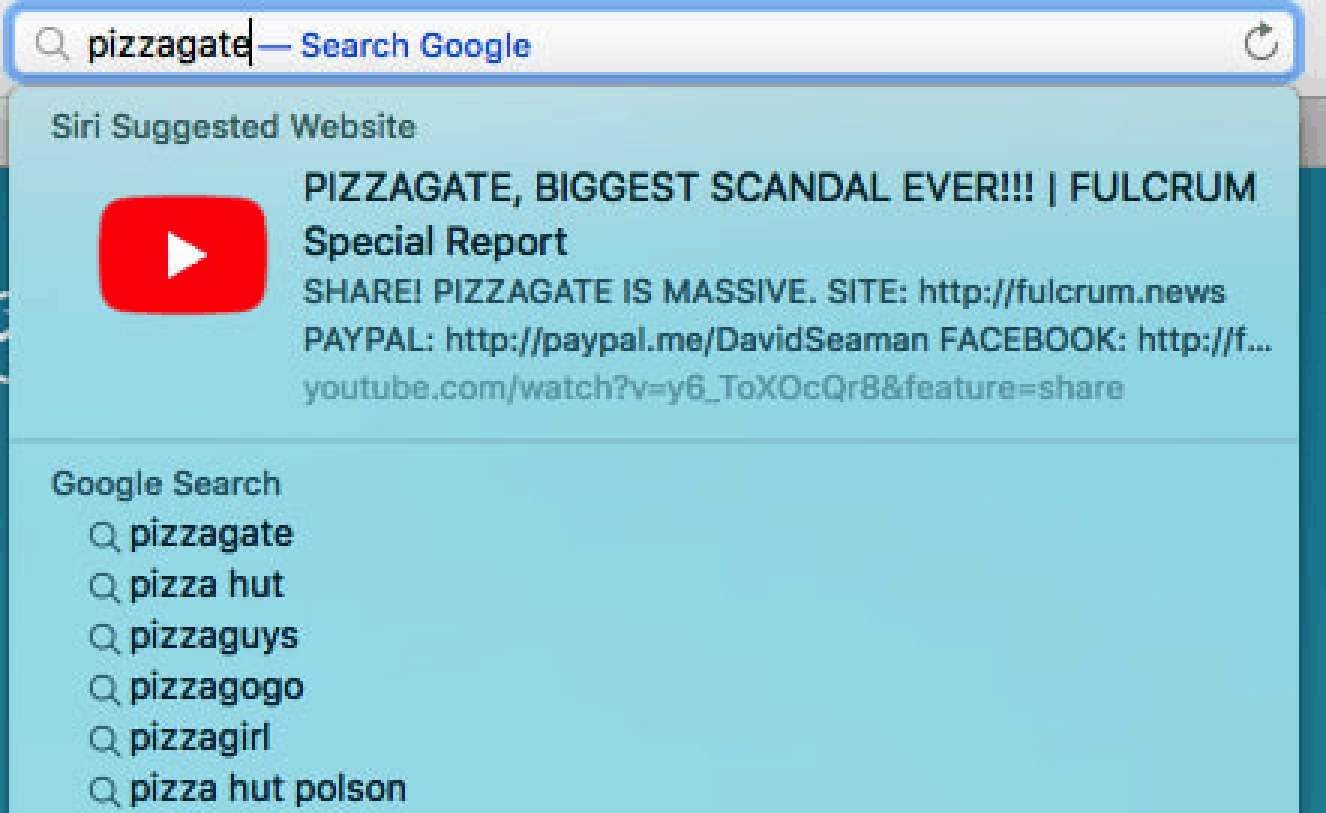Apple removed several questionable websites serving up fake news and conspiracy theories via Safari’s “Siri Suggested” search results.
The recommended websites pointed users to posts about the “Pizzagate” hoax, Holocaust denier articles, and debunked race-based “science” stories. After BuzzFeed News alerted Apple to these bogus results, Cupertino promptly removed the recommendations.
As one example of the problem, BuzzFeed‘s article noted that:
“As of [Monday], if you typed ‘Pizzagate’ into Apple’s Safari, the browser’s ‘Siri Suggested Website’ prominently offered users a link to a YouTube video with the title ‘PIZZAGATE, BIGGEST SCANDAL EVER!!!’ by conspiracy theorist David Seaman (the video doesn’t play, since Seaman’s channel was taken down for violating YouTube’s terms of service). The search results appeared on multiple versions of Safari.”
Other examples included autocomplete links to extremely questionable (to put it mildly) websites. For instance, Safari’s autocomplete for the words “whites are smarter th” directed users to an Answers.com page. Submitted by a user, the page claimed that, “God made white people, blacks came from monkeys.”
Apple issued a statement after scrubbing the sites from Siri’s list of suggestions:
“Siri Suggested Websites come from content on the web and we provide curation to help avoid inappropriate sites. We also remove any inappropriate suggestions whenever we become aware of them, as we have with these. We will continue to work to provide high-quality results and users can email results they feel are inappropriate to applebot@apple.com.”
Cracking down on fake news
Apple isn’t the only tech company to experience such problems. Google notably found itself on the receiving end of lawsuits for its autocomplete suggestions, which are based on searches entered by users.
According to BuzzFeed‘s report, the Siri Suggested problem is the result of a “data void” when Safari scrambles to find an answer to a query. It is not a case of Apple maliciously programming in these results.
Over the past two years, “fake news” and associated problems grabbed headlines worldwide. In the aftermath of the 2016 U.S. presidential election, Silicon Valley faces enormous pressure to deal with the spread of inappropriate content online. In June, Amazon, Apple, Google, Facebook, Microsoft, Snap, Twitter and other tech companies met with members of the U.S. intelligence community to discuss the problem.
Since then, tech companies have been making a concerted effort to crack down on this type of material. Perhaps the highest profile takedown is the recent expunging of Alex Jones and Infowars from a variety of platforms. This move may have been prompted by Apple banning Jones’ from the Podcasts app.
In early 2017, Tim Cook described fake news as “one of today’s chief problems.”
Source: BuzzFeed News


